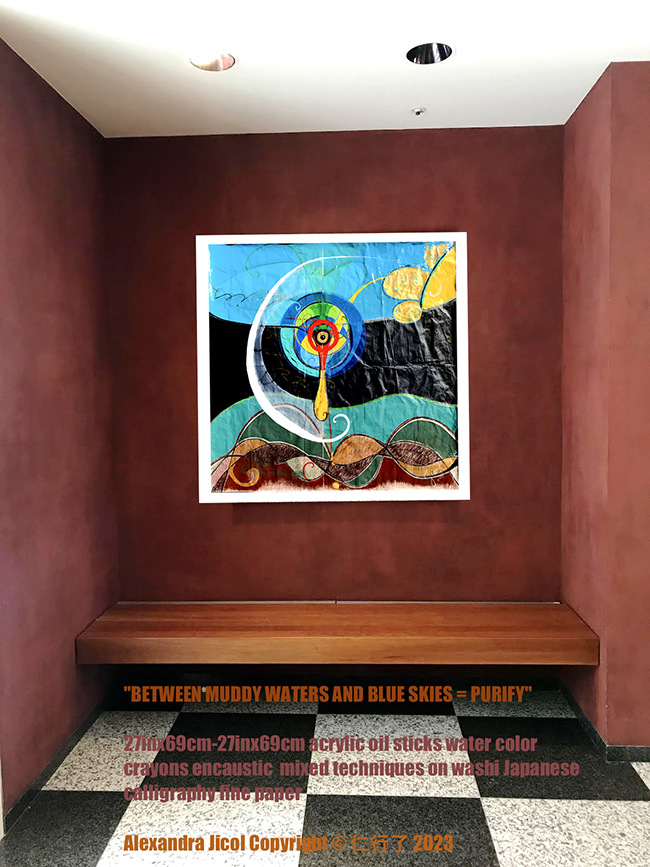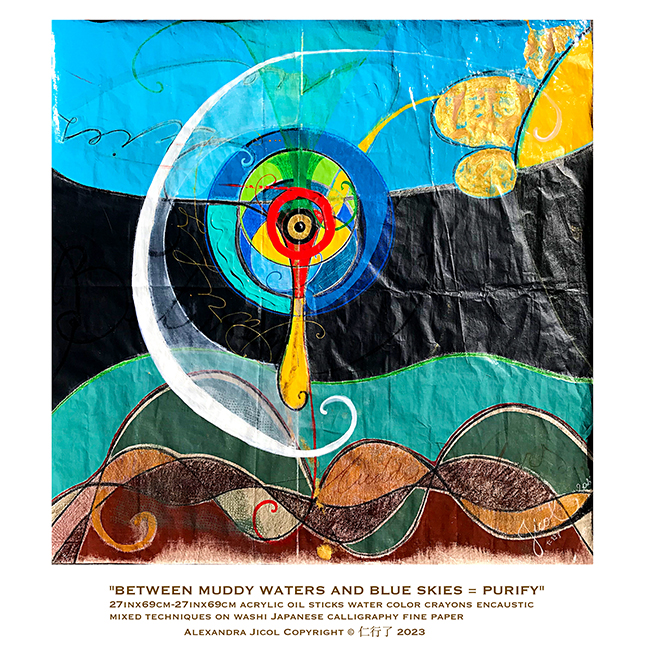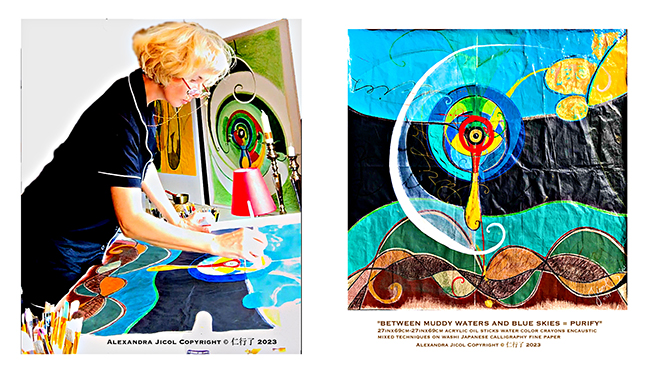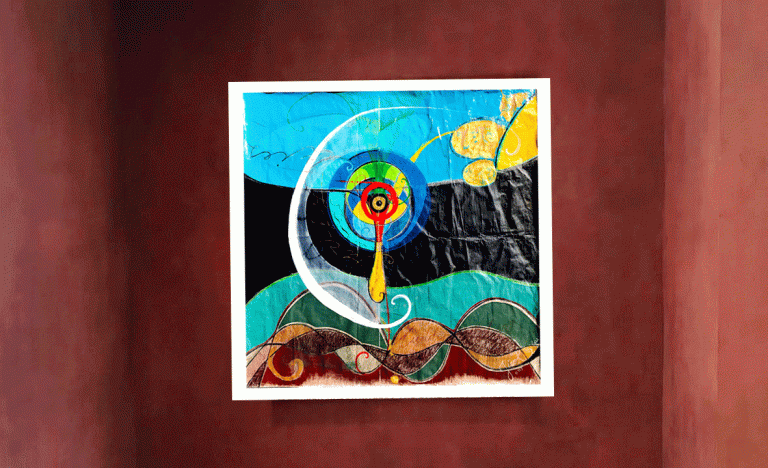Alexandra Jicol’s art is grounded in connection. Born in Bucharest during a time of restriction and social strain, she was shaped by contrast: the stillness of Romanian landscapes alongside the tightness of life in a controlled city. That tension—between openness and pressure—runs through her work, shaping the emotional depth and quiet force behind each piece.

Her paintings are less about image and more about atmosphere. They ask you to pause and feel, not just look. With every mark, she investigates what it means to carry emotions we don’t always understand. Her materials are physical, but her focus is psychological. Using texture, color, and space, she builds scenes that feel internal—like memories, sensations, or dreams surfacing. Her practice isn’t about resolving conflict but staying inside it long enough to learn something true.

In Between Muddy Waters and Blue Skies = Purify, Jicol sets the stage for one of those internal crossroads. The piece is painted on Japanese calligraphy paper, later mounted to wood. Its tall, narrow frame—27 x 69 centimeters—suggests vertical movement. Something rising. Something pulling upward.
Front and center is an eye—not decorative, not passive. It floats in the middle of the composition, quietly alert. Below it lies a field of murky, shadowed color, a symbolic landscape of confusion or grief. Above, blue opens out like a held breath, light and still. This central eye feels like the soul in transit—moving through difficulty, not yet arrived, but reaching.
Jicol doesn’t smooth things over. She works with materials that push back: acrylics, oil sticks, water crayons, and wax. The encaustic layers give the surface a subtle armor, like emotional skin—some areas protected, others exposed. The wax traps light, offering warmth in some places and shadows in others. It’s unpredictable, which makes it feel alive.

That unpredictability is mirrored in her brushwork and layering. Some parts are immediate. Others only come through under the right light or after a second glance. This shifting visibility is part of the meaning. Understanding doesn’t always show up when we want it to. Sometimes we have to wait for it. Sometimes it waits for us.
One small but essential detail is the white line—a familiar presence in Jicol’s visual vocabulary. Here, it curves between elements like a thread, a break, a barrier. It’s not loud, but it’s steady. It suggests containment, or maybe protection. It keeps the chaos below from overwhelming the stillness above. In the top corner, a golden sun rendered in wax watches quietly. It doesn’t blaze—it glows. It holds space for the possibility of renewal.
Jicol’s use of washi paper is intentional. The paper itself is porous, vulnerable, responsive. It takes pigment differently in every area, soaking in some colors, resisting others. Mounted on wood, it gains structure—a balance between delicacy and strength. That tension shows up in her subject matter, too. There’s always a quiet pull between holding on and letting go.
Between Muddy Waters and Blue Skies = Purify doesn’t give you all the answers. It isn’t supposed to. Instead, it invites you into a shared emotional space. It asks: how do we live with uncertainty? How do we move forward when we’re not quite whole? Can we find clarity while we’re still tangled in the mess?
These are the kinds of questions Jicol brings forward without forcing conclusions. She’s not offering resolution, but reflection. The work lingers, not because of its size or color, but because it speaks with quiet insistence. It asks you to come closer, and stay longer.
In a world that often pushes for quick meaning and easy beauty, Jicol takes the opposite approach. She slows it down. She paints the in-between spaces—the moments of hesitation, the pauses between hurt and healing. And in doing so, she reminds us that clarity doesn’t always arrive in full light. Sometimes, it comes in layers. Sometimes, it glows faintly, waiting to be seen.

